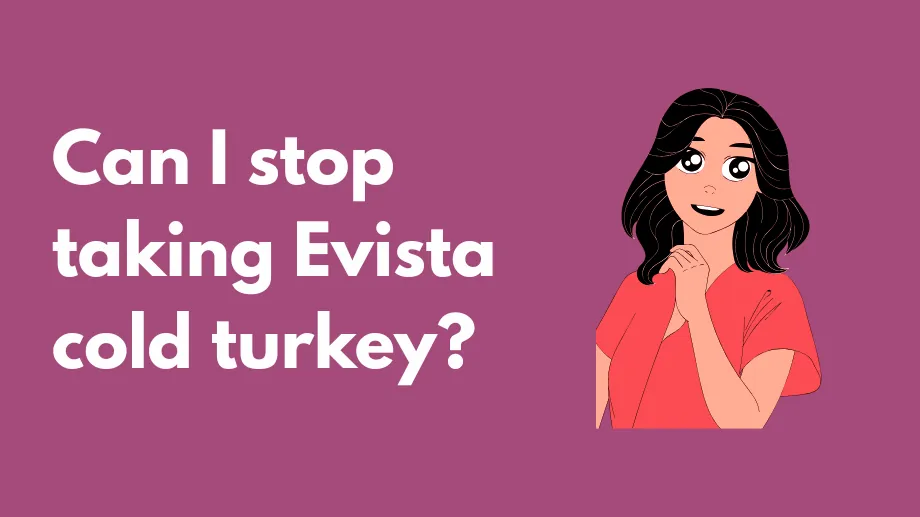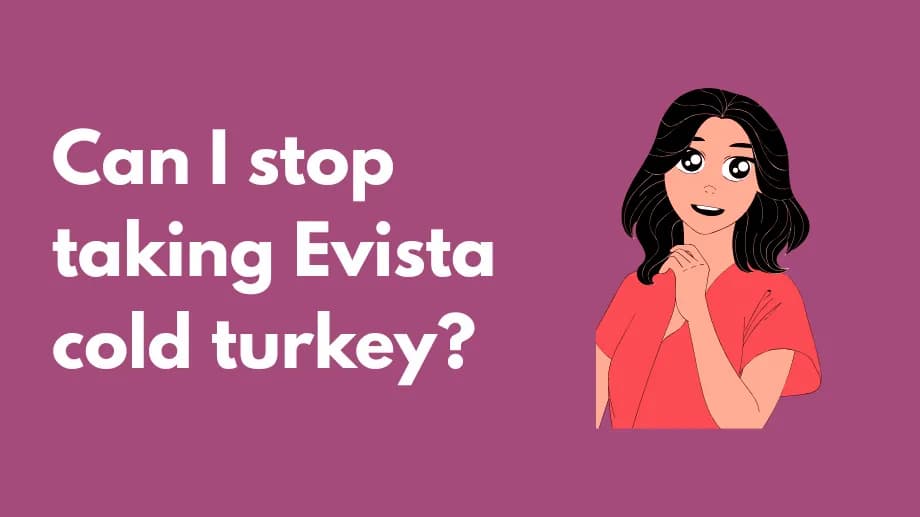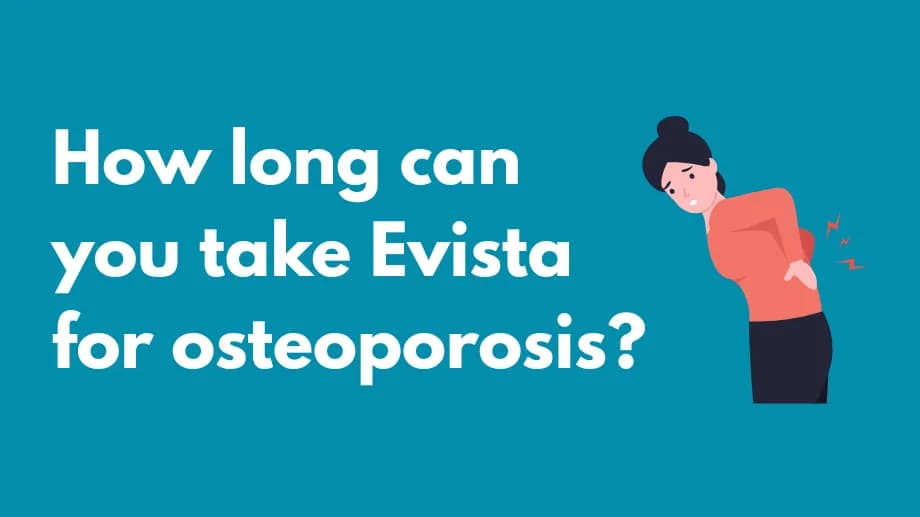Can I stop taking Evista cold turkey?

Evista (raloxifene) is taken daily by postmenopausal women to prevent and treat osteoporosis and reduce the risk of breast cancer. It is designed for long-term use, sometimes spanning several years.
Understanding Evista
Stopping Evista suddenly is not recommended without consulting your healthcare provider. Discontinuation can increase your risk of fractures and breast cancer, depending on your treatment goals.
In a study analyzing the cessation of Evista in women treated for postmenopausal osteoporosis, bone density markers returned to baseline levels after 120 weeks, with the positive effects on bone turnover lost 6 months post-treatment. For those considering stopping Evista, alternative treatments might include bisphosphonates like Fosamax (alendronate) or hormone replacement therapy (HRT) like Estrace (estradiol).
Evista FAQs
What is Evista used for?
Evista is utilized for:
- The treatment and prevention of osteoporosis in postmenopausal women.
- Reducing the risk of invasive breast cancer in women who are at high risk or have osteoporosis.
Benefits of Evista
Evista acts similarly to estrogen to reduce bone resorption and turnover, increasing bone mineral density and reducing the risk of fractures. It also blocks estrogen in breast tissue, which helps prevent the growth of tumors that require estrogen.
Common Side Effects
Side effects include flu-like symptoms, joint pain, hot flashes, headache, bronchitis, and swelling in arms or legs.
Serious Adverse Effects
Be vigilant for serious side effects such as allergic reactions, blood clots, or stroke symptoms, and seek immediate medical attention if they occur.
Shop Medications
Drug Interactions and Warnings
Evista should be used with caution if you have a history of blood clots or stroke. Drug interactions may occur with certain other medications, including estrogens and warfarin.
Precautions Before Taking Evista
Discuss all your medical conditions with your healthcare provider to ensure Evista is safe for you, especially if you have liver or kidney issues, or if you are at high risk for heart disease.
How effective is Evista in preventing breast cancer?
Evista has been shown to significantly reduce the risk of invasive breast cancer in postmenopausal women with osteoporosis or at high risk for breast cancer.
Weight Considerations
While some weight gain has been reported, it is comparable to what might be expected with placebo and could be influenced by other factors like hormonal changes.
Related Medications
Sources
Detailed information can be found through various resources such as the FDA’s prescribing information, Medscape, and the Prescriber’s Digital Reference.




